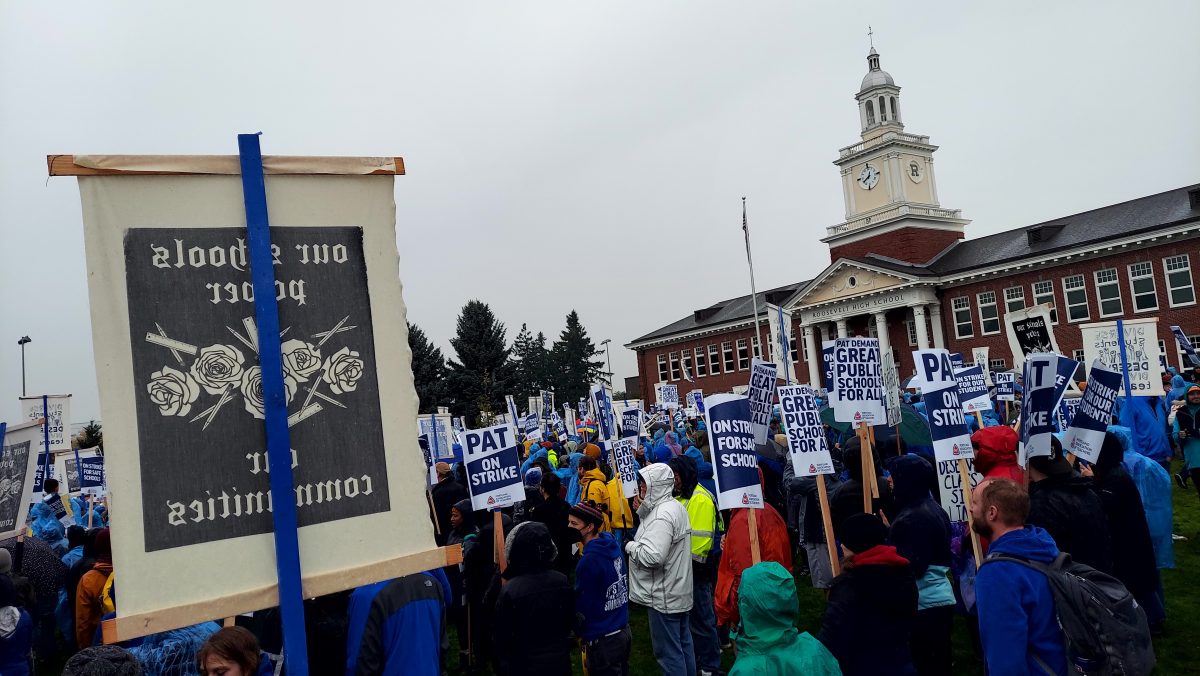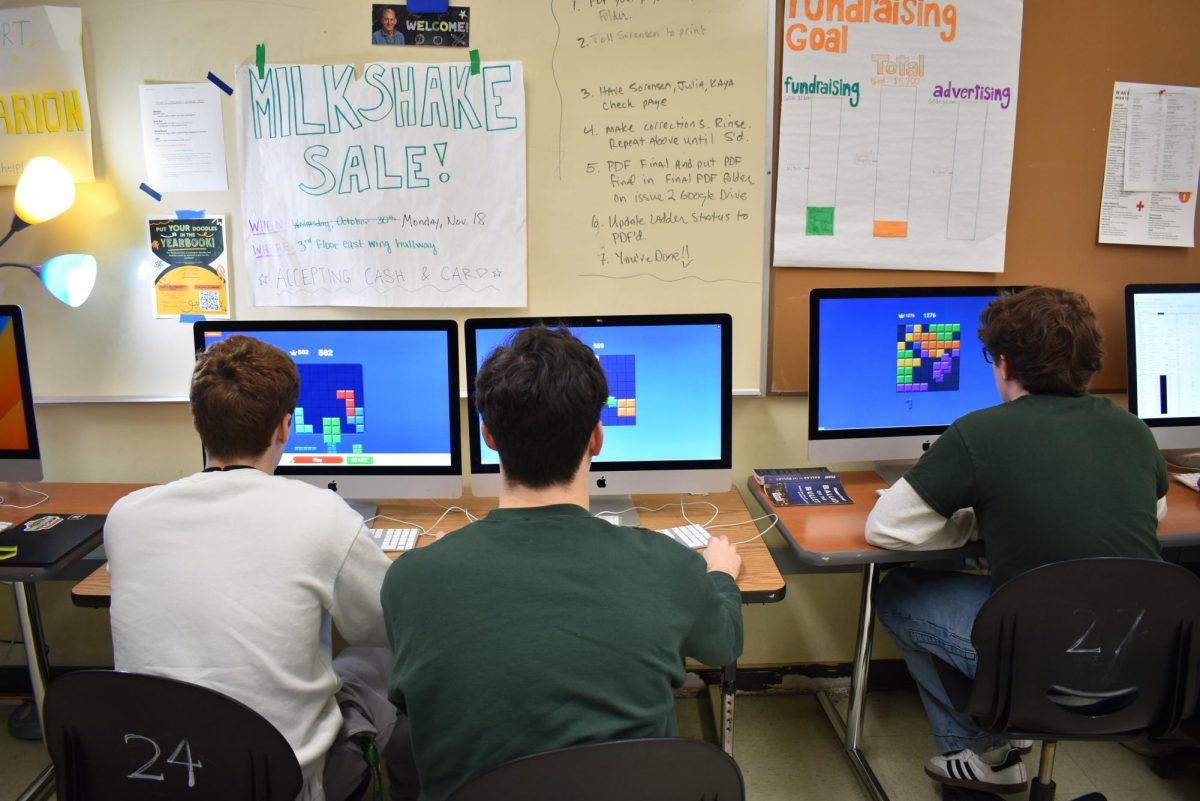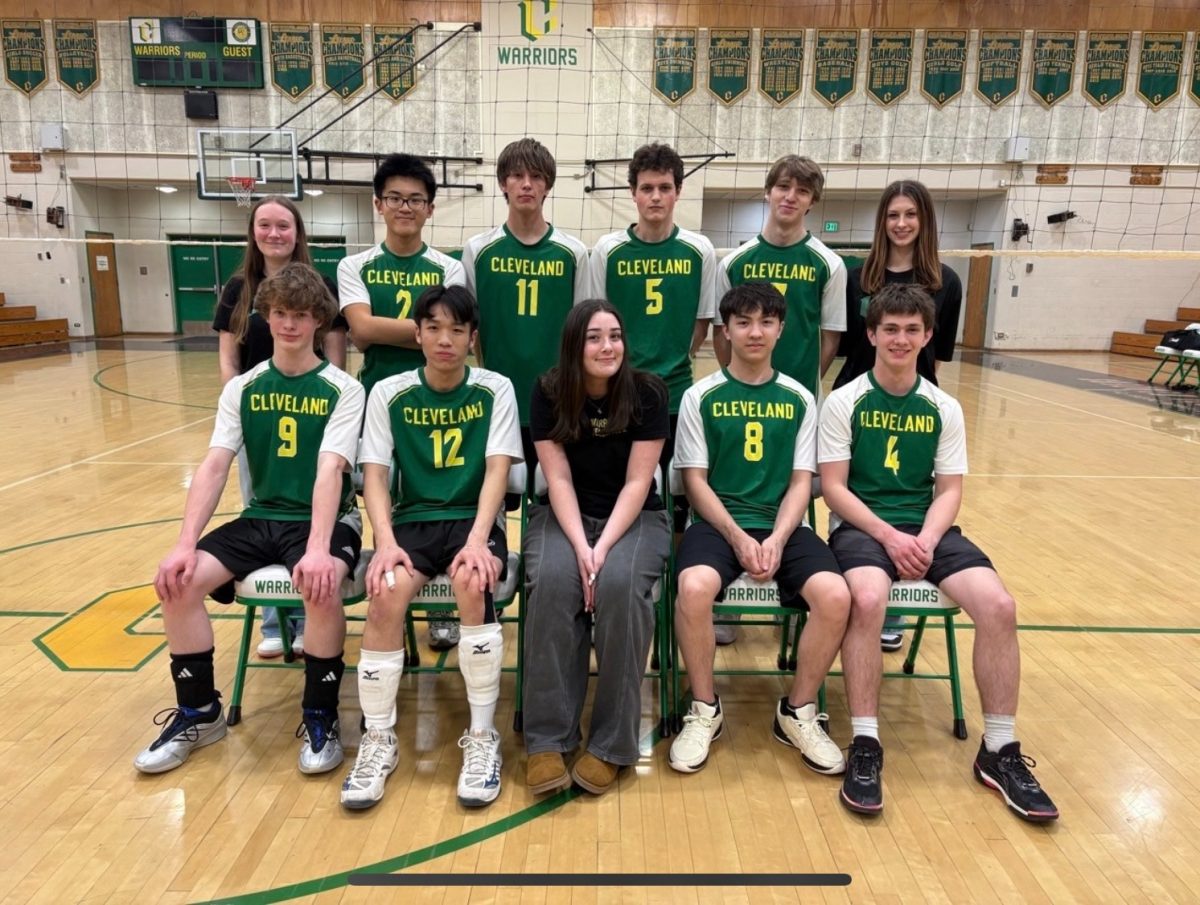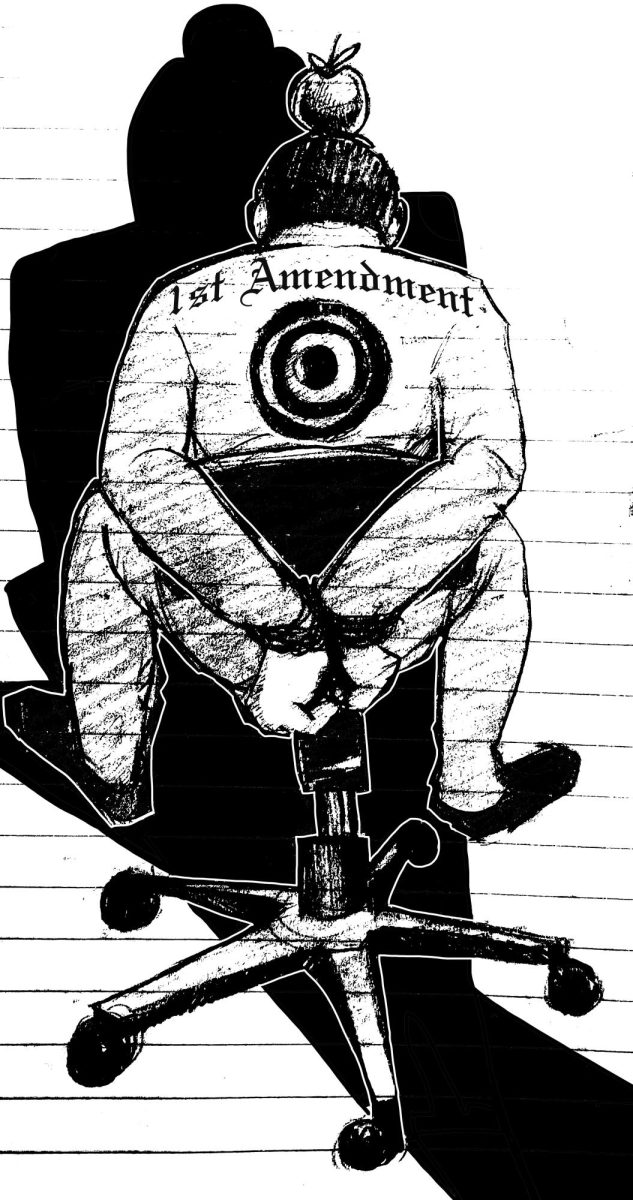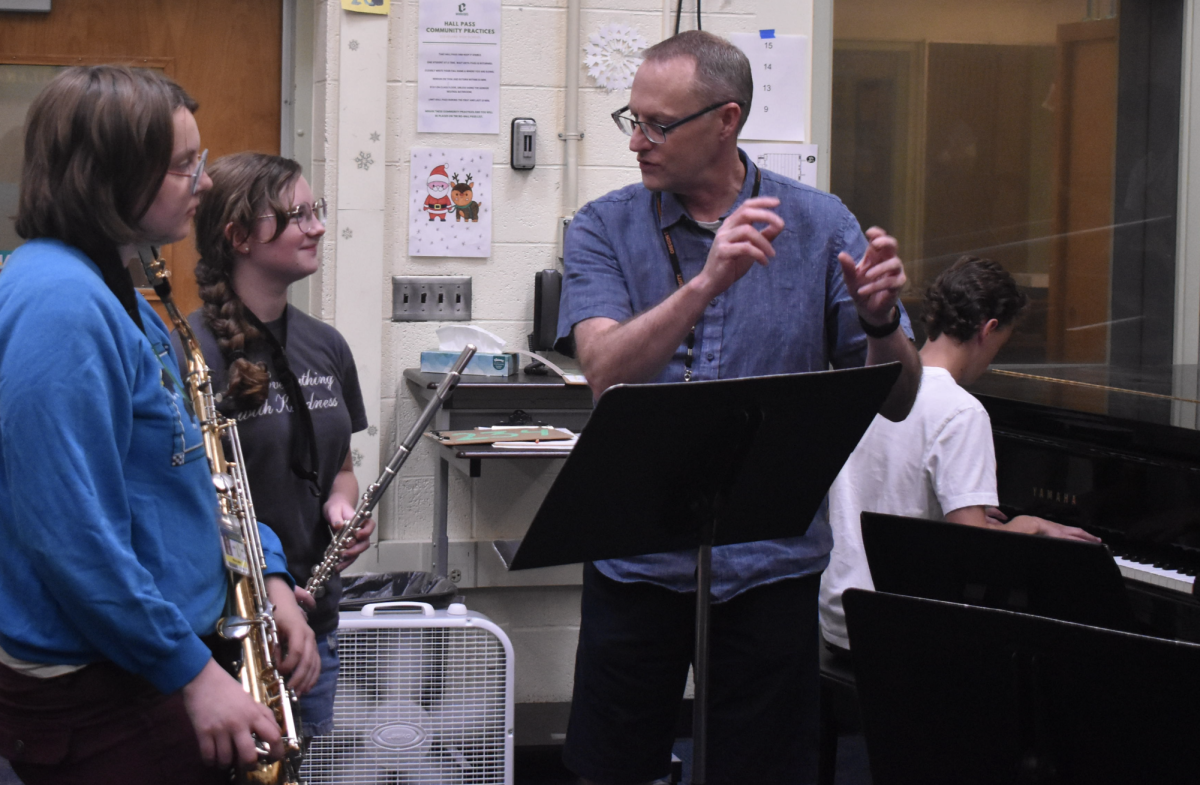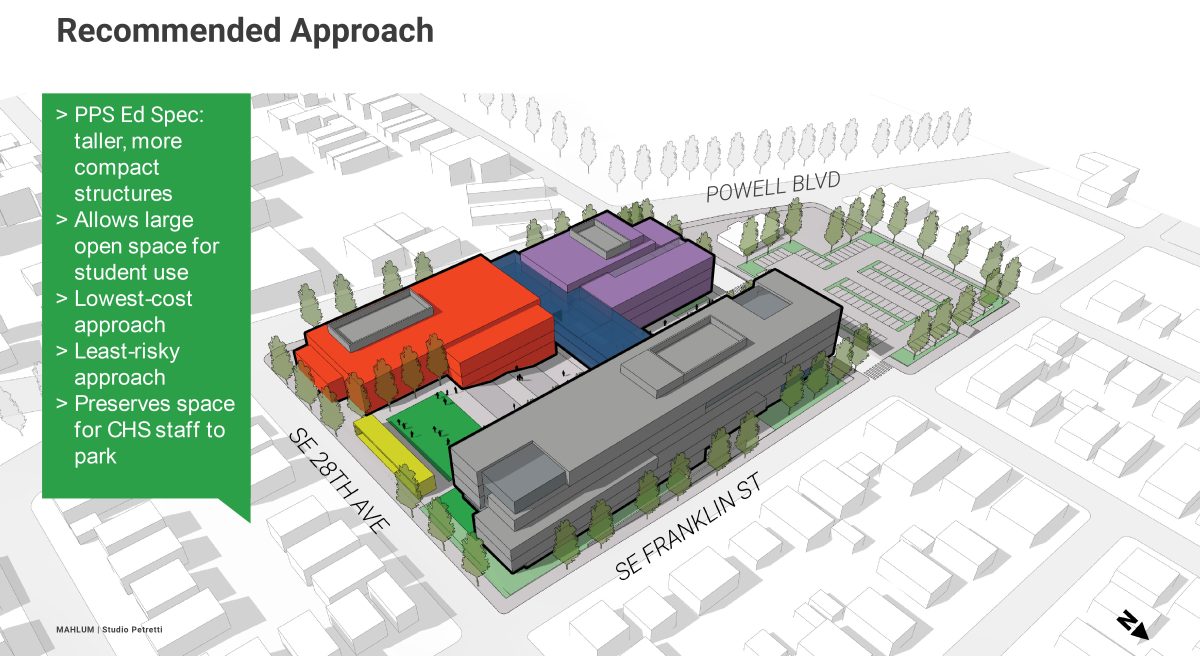Portland Public Schools and the Portland Association of Teachers union have not yet reached an agreement, and the PPS teacher’s strike has begun its second week. Monday, Nov. 6 will mark the third unexpected day that PPS students have had off school. Portland families are concerned about the duration of the strike and the lasting impacts that an impasse will cause.
Senior Jakob Ramos told the Clarion that he is in support of the PAT, however, the timeline is his main concern with this strike. “The disruption of the main flow of school is a definite concern. IB Students are impacted immensely, due to hard deadlines and students being unable to contact teachers to get help with the IB work. We are already going to be pushed back a week. I’m worried that it gets pushed back too far and we end up having seniors’ graduation pushed back into mid-June or even July,” he said.
Junior Spencer Maddux agrees with Ramos. “It’s very chill, I was very excited at first. However, now it’s gone on a lot longer than I would like. I’ve been just spending my days playing Fortnite and it’s probably not the most productive. I’m concerned about IB Tests, testing deadlines are strict and I feel like I need to be learning the material,” he said.
Sophomore Ben Tierney is not drastically concerned about the strike and its impact on education. “So far, it seems just like a big break, it doesn’t affect me, except for my summer being pushed back. I already have trips planned for the summer. If the strike pushes back the last day of school, I will have to figure out ways to plan around it,” he said.
On Wednesday, Nov 2, after Cleveland teachers were picketing outside, the Portland Association of Teachers (PAT) held a demonstration outside Roosevelt High School. Teachers from across the district voiced their perspectives on the strike and community support.
Mr. Pierce of Creston-Kenilworth Elementary explained they have, “Mixed feelings–there’s an excitement about it–because it is the first time, and I want things to change, and I like to see my fellow teachers all around supporting and letting their voice go. But I’m also worried because kids shouldn’t be out of the class, and I miss my kids, they just went through a whole COVID phase, so this is going to be rough on them. I’m hoping the public puts pressure on the administration to get this done and get it right, so we can get back to work and do what we love.” He was picketing because “Over and over, I’ve seen overcrowded classrooms that weren’t supported the way they should be because there are many students that need more help and aren’t getting it. I’ve been in classrooms where there was no heat or the heat was too high, and [there were] mice, rodents, rats.” Additionally, “I’ve seen, as the years go by, the district taking funds away from special ed, and that affects everyone, which has bothered me.”
Mr. Baghdadi of Tubman Middle School said, “I’m hopeful that it ends sooner rather than later. There are lots of things that [students] need that [they] deserve that [they] haven’t been getting since COVID. It’s time that [they] get them back and hopefully we don’t have to wait anymore.” They were out striking today for several reasons. “We’ve had an increase in students at Tubman and a decrease in teachers. […] Personally, I went from a classroom size of about 110 to about 150, which is a huge jump.” Despite this, “I had 15 minutes of planning time the entire week last week, and I had to do all of that outside of the time when I’m supposed to get paid. It’s gotten to a point where it’s unfair for [students], and that’s why we’re all here.”
Ms. Short of Grant High School said her experience has “been positive, [there is a] real sense of community and solidarity among the staff members, because we know what we’re fighting for is better working conditions for us and better learning conditions for our students.” Overall, they have felt “totally empowered and united.”
Devin Harkness, a counselor at Access Academy, echoed this sentiment. “It feels really good for there to be solidarity with the other educators and to be fighting for what we know is right for students,” Harkness said.
Lisa Woods, a Chapman parent, was at Roosevelt with her broader community and her daughter. She voiced her support, saying, “I stand with the teachers 100%. It sucks that the kids are out of school, that they’re missing valuable learning time, and that [teachers] have to be out here in the rain fighting for what they should have automatically.”
PAT President Angela Bonilla explained, “The energy is electric. I think our educators have been fed up for a while they’ve seen the students that they have tried to serve that end up falling through the cracks, not getting the support that they need, and they have said enough is enough.”
Personally, Bonilla has seen the need for the PAT’s strike demands first-hand after the pandemic. “When I was an instructional coach at Scott, we had a situation where an eight-year-old student was refusing to leave the classroom for the teacher to go to recess. Because I was an instructional coach, and not with a class, I could come and support–which is not the case in most schools. Once I had the student there, I asked if he wanted to talk about it, he shook his head and I said, ‘Do you want to draw what you’re thinking?’ And he said, ‘Okay,’ and he started to draw what I realized was a funeral scene. […] This was after we came back from COVID closures, a lot of our students have experienced losing families, and whether it’s family they lost because of COVID or the memory of that loss and the retriggering of that trauma: it is causing them not to be able to access the education they deserve.”
She explained that although this is a common problem, resources to solve it are largely absent. “A lot of our schools don’t have an extra instructional coach and an extra counselor, and they don’t have the people they need to meet [student needs]. And so if those people aren’t there, what does the third-grade teacher have to do to get their kids out to recess? We have to stop that.” This was one of many experiences that showed Bonilla, “We have more kids with more need and less resources to support them,” she said.
Bonilla shared PAT’s aspirations, “We hope that the next bargaining sessions show–because we are on strike–that this is a serious issue. They need to come up with serious proposals. We’re also hoping that they allow the school board members to come to these bargaining sessions. […] Proposals are coming to the table that are not student-centered, that are not going to lead us to a settlement, that are there to further antagonize–and be able to display to the press that ‘PAT doesn’t want what we gave them, even though we gave them what they want’–because the contract language is complicated. When you read the words, it’s like ‘that’s not actually what we asked for, but you can now say that you tried to give it to us.’”
Community support is valuable to the PAT, and Bonilla believes it is also abundant. “The Oregon Education Association did a statewide survey, and almost 90% of families are in support of educators going on strike to reduce class sizes, to get appropriate compensation, and to get additional planning time. So the things that we’re fighting for, we know our community is behind us on, and the reason that’s so important is we’re fighting for the things our community and our students need. […] We put our hearts into this work, and it’s good to feel that [PPS families] love us as much as we love them,” she said.
She has a message for students who want to support the PAT members in their communities: “Speak your mind. Speak your voice. […] Y’all are the ones who can make those movements and put that information of your lived experiences out there so that the adults get their crap together and listen, because you all are the ones who have to live this experience in our schools. You deserve to be drivers in how your schools run.”
Bonilla explained that PAT members are not going to wait anymore. “We waited for mental health proposals for months. We waited for special-ed proposals for months, and now our special-ed proposal is contingent. They said that even though we’ve made all this progress, it is contingent on us giving away rights for hiring and transfers. […] That doesn’t seem student-centered to me. I hope that they realize that our community’s behind us, they’re standing on the line rain or shine with us, and that they expect the district to do what’s right, not just what’s easy–which is maintaining the status quo,” she said.
The district has adjusted the strike advisory notification time for PPS families from 7 p.m. nightly to 9 p.m., as the district and the PAT extend their bargaining hours. The Clarion will continue to post updates as the strike and district/PAT negotiations progress.
*Contributor: Orianna Reid (Voices of Roosevelt)



